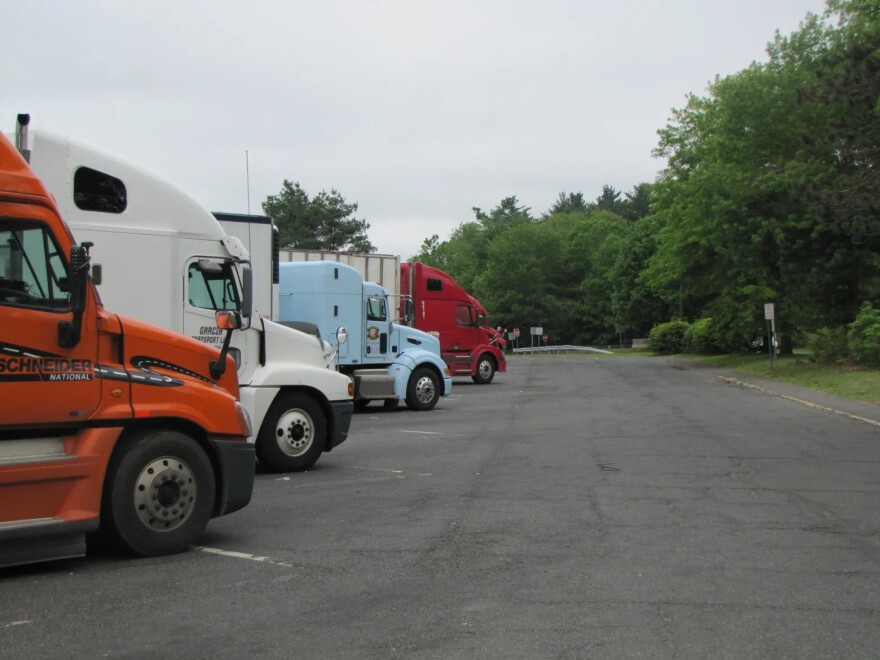A program aimed at easing supply chain bottlenecks while boosting employment among formerly incarcerated individuals advanced in the Connecticut General Assembly Wednesday.
State senators voted unanimously in favor of Senate Bill 334, which would require the Department of Correction to offer inmates with six months or less of their sentence remaining the opportunity to study for and take the test for a Commercial Learners’ Permit, the first step in obtaining the credential necessary for professional truck drivers.
If passed, the legislation would create a public-private partnership, with one or more nonprofit organizations administering the program within DOC. It’s estimated to cost approximately $20,000 annually.
The bill, which now moves to the House, expands on legislation passed last year that established a “vocational village program” within the Department of Correction, providing incarcerated people with training to earn certifications in fields like computer coding, carpentry, specialized manufacturing, welding and other trades.
The state of Michigan established a vocational village program several years ago. Other states, including Tennessee and Arizona, offer inmates commercial driver’s license training and testing similar to that proposed in this year’s bill.
Offering training for commercial trucking licenses targets an especially tight part of today’s labor market. A persistent shortage of truck drivers has aggravated recent supply chain delays caused by heightened business and consumer demand. Federal officials have been working to lower age requirements in order to expand the pool of drivers.
Sen. Will Haskell, D-Westport, chair of the General Assembly’s transportation committee, called S.B. 334 a “win-win.” Many formerly incarcerated individuals have trouble finding work upon release, which can drive them back into crime, Haskell said in a statement Wednesday.
“Meanwhile, workforce shortages in the trucking industry have strained our supply chain, here in Connecticut and across the country,” he said. “Our legislation aims to address both problems.”
The bill garnered support from a wide range of groups, including the Motor Transport Association of Connecticut and the state chapter of the American Civil Liberties Union.
“The workforce crisis has hit Connecticut harder than most other states and it continues to slow our economic recovery from the pandemic,” Chris DiPentima, president of the Connecticut Business and Industry Association, said Thursday. “Solving the crisis requires bold and broad actions fueled by public-private sector collaboration that generates innovative ideas to reimagine how we retain and recruit talent.”
Uzoma Orchingwa, founder and chief executive of Ameelio, a New Haven nonprofit that develops technology platforms for the incarcerated population, testified last month in support of the bill. The company contracts with four state prison systems to provide a free video-calling platform to inmates. Now, it’s aiming to provide technology to support the CDL training program.
Orchingwa said Ameelio developed an “upskilling platform” and made the trucking credential its first order of business.
“The driver shortage is so severe that people are hired regardless of their criminal record,” Orchingwa said.
During the Senate debate Wednesday, Sen. Heather Somers, R-Groton, called the bill “a great example of what can happen when two agencies come together.” She added: “We are solving the problem of having incarcerated folks be able to find work. We are filling the need of the supply chain, and we are working together across agencies to make this work.”
Copyright 2022 WSHU. To see more, visit WSHU. 9(MDA3MTA1NDEyMDEyOTkyNTU3NzQ2ZGYwZg004))





